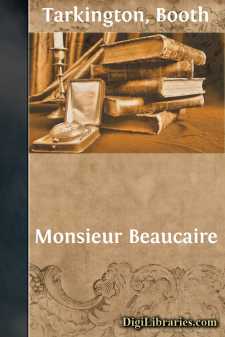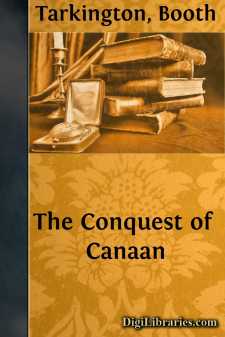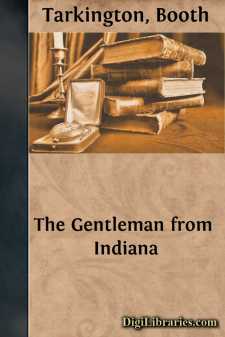Categories
- Antiques & Collectibles 13
- Architecture 36
- Art 48
- Bibles 22
- Biography & Autobiography 813
- Body, Mind & Spirit 142
- Business & Economics 28
- Children's Books 17
- Children's Fiction 14
- Computers 4
- Cooking 94
- Crafts & Hobbies 4
- Drama 346
- Education 46
- Family & Relationships 57
- Fiction 11829
- Games 19
- Gardening 17
- Health & Fitness 34
- History 1377
- House & Home 1
- Humor 147
- Juvenile Fiction 1873
- Juvenile Nonfiction 202
- Language Arts & Disciplines 88
- Law 16
- Literary Collections 686
- Literary Criticism 179
- Mathematics 13
- Medical 41
- Music 40
- Nature 179
- Non-Classifiable 1768
- Performing Arts 7
- Periodicals 1453
- Philosophy 64
- Photography 2
- Poetry 896
- Political Science 203
- Psychology 42
- Reference 154
- Religion 513
- Science 126
- Self-Help 84
- Social Science 81
- Sports & Recreation 34
- Study Aids 3
- Technology & Engineering 59
- Transportation 23
- Travel 463
- True Crime 29
Booth Tarkington
Booth Tarkington was an acclaimed American novelist and playwright, best known for his novels "The Magnificent Ambersons" and "Alice Adams," both of which won the Pulitzer Prize for Fiction. Born in 1869 in Indianapolis, Indiana, Tarkington's works often depicted life in the Midwest during the early 20th century, capturing the social and economic changes of the era. His rich characterizations and keen observations of American life made him one of the most popular and significant authors of his time.
Author's Books:
Sort by:
by:
Booth Tarkington
ACT I ANDREW GIBSON'S _office in his piano factory where he manufactures "The Gibson Upright." A very plain interior; pleasant to the eye, yet distinctly an office in a factory, and without luxuries; altogether utilitarian. Against the wall on our right is a roll-top desk, open, very neat, and in the centre of the writing pad a fresh rose stands in a glass of water. Near by is a long,...
more...
by:
Booth Tarkington
CHAPTER I The patient, an old-fashioned man, thought the nurse made a mistake in keeping both of the windows open, and her sprightly disregard of his protests added something to his hatred of her. Every evening he told her that anybody with ordinary gumption ought to realize that night air was bad for the human frame. "The human frame won't stand everything, Miss Perry," he warned her,...
more...
by:
Booth Tarkington
"Yes, we'll all feel gay when Johnnie comes marching home again," he finished, with a musing chuckle. "Did you, Grandpa?" the boy asked. "Did I what?" "Did you all feel gay when the army got home?" "It didn't get home all at once, precisely," the grandfather explained. "When the war was over I suppose we felt relieved, more than anything else."...
more...
by:
Booth Tarkington
CHAPTER ONE Valentine Corliss walked up Corliss Street the hottest afternoon of that hot August, a year ago, wearing a suit of white serge which attracted a little attention from those observers who were able to observe anything except the heat. The coat was shaped delicately; it outlined the wearer, and, fitting him as women's clothes fit women, suggested an effeminacy not an attribute of the...
more...
by:
Booth Tarkington
CHAPTER I. A Cat Can Do More than Look at a King It was long ago in the days when men sighed when they fell in love; when people danced by candle and lamp, and did dance, too, instead of solemnly gliding about; in that mellow time so long ago, when the young were romantic and summer was roses and wine, old Carewe brought his lovely daughter home from the convent to wreck the hearts of the youth of...
more...
by:
Booth Tarkington
Chapter One The young Frenchman did very well what he had planned to do. His guess that the Duke would cheat proved good. As the unshod half-dozen figures that had been standing noiselessly in the entryway stole softly into the shadows of the chamber, he leaned across the table and smilingly plucked a card out of the big Englishman's sleeve. "Merci, M. le Duc!" he laughed, rising and...
more...
by:
Booth Tarkington
ENTER CHORUS A dry snow had fallen steadily throughout the still night, so that when a cold, upper wind cleared the sky gloriously in the morning the incongruous Indiana town shone in a white harmony—roof, ledge, and earth as evenly covered as by moonlight. There was no thaw; only where the line of factories followed the big bend of the frozen river, their distant chimneys like exclamation points on...
more...
by:
Booth Tarkington
I. A Change of Lodging The glass-domed "palm-room" of the Grand Continental Hotel Magnifique in Rome is of vasty heights and distances, filled with a mellow green light which filters down languidly through the upper foliage of tall palms, so that the two hundred people who may be refreshing or displaying themselves there at the tea-hour have something the look of under-water creatures playing...
more...
by:
Booth Tarkington
Chapter I Major Amberson had "made a fortune" in 1873, when other people were losing fortunes, and the magnificence of the Ambersons began then. Magnificence, like the size of a fortune, is always comparative, as even Magnificent Lorenzo may now perceive, if he has happened to haunt New York in 1916; and the Ambersons were magnificent in their day and place. Their splendour lasted throughout...
more...
by:
Booth Tarkington
CHAPTER I. THE YOUNG MAN WHO CAME TO STAY There is a fertile stretch of flat lands in Indiana where unagrarian Eastern travellers, glancing from car-windows, shudder and return their eyes to interior upholstery, preferring even the swaying caparisons of a Pullman to the monotony without. The landscape lies interminably level: bleak in winter, a desolate plain of mud and snow; hot and dusty in summer,...
more...











